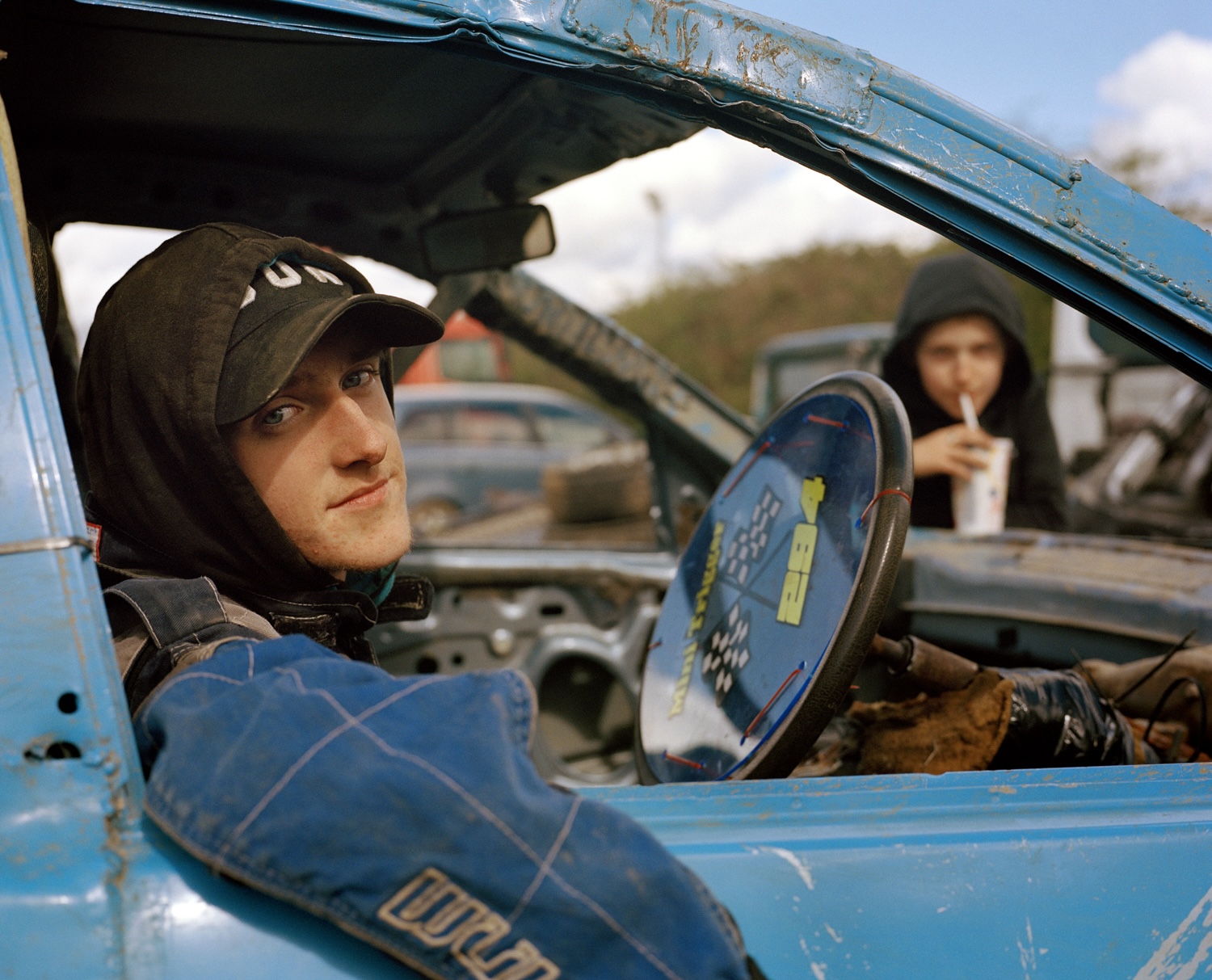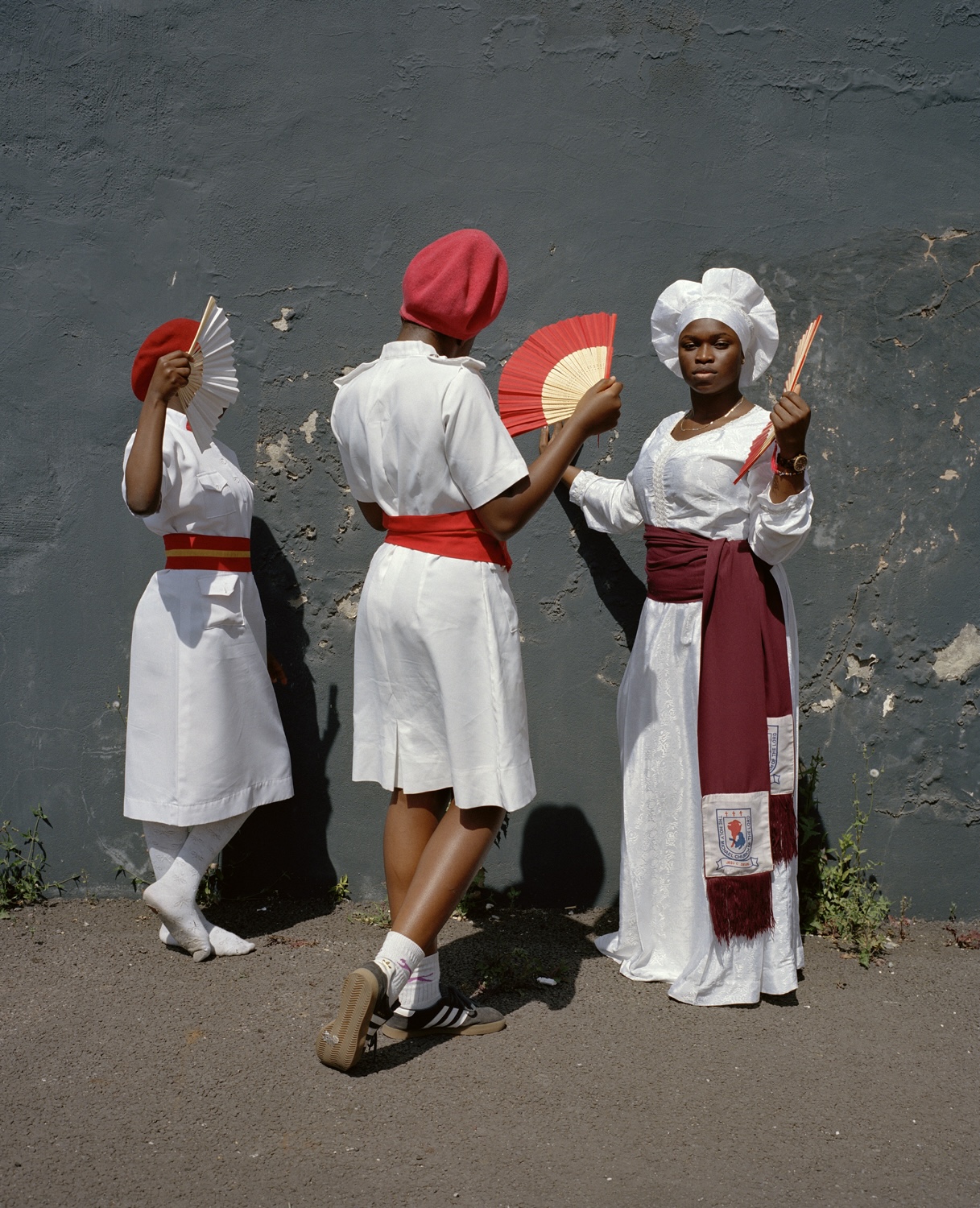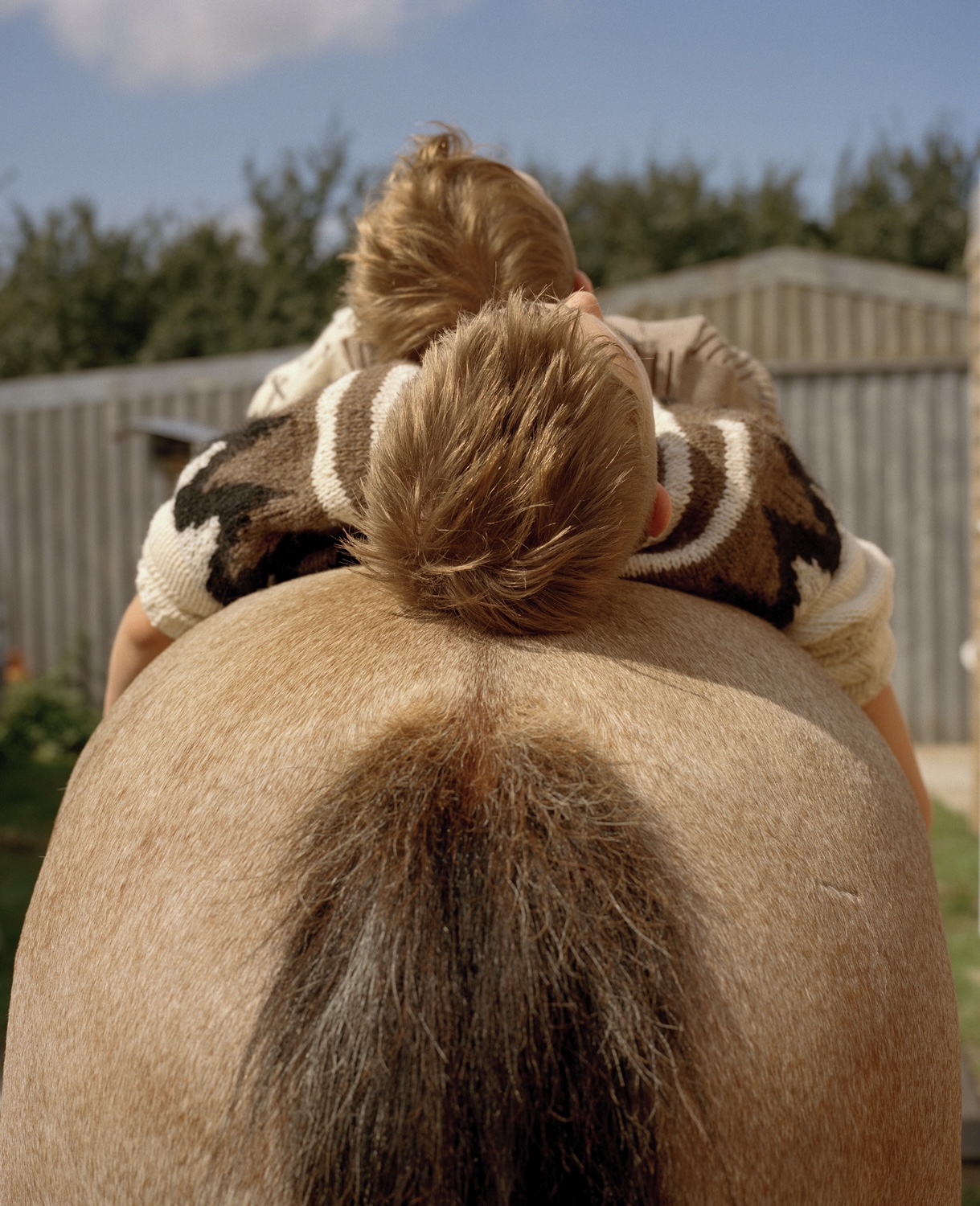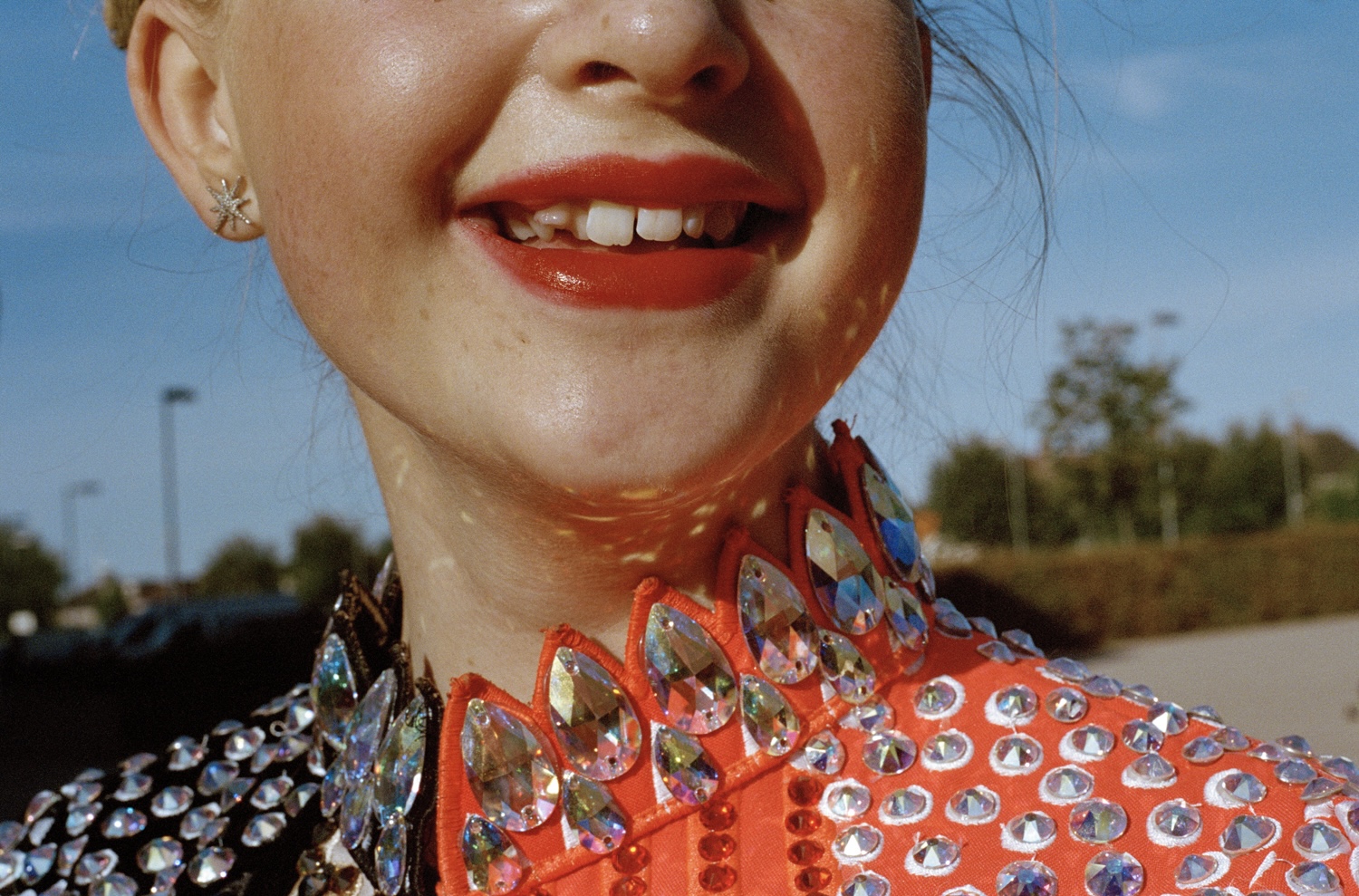All images © Sophie Green
Tangerine Dreams is an honest look at the many lives across the British Isles and the different communities who call it home – the same communities affected by the current hostile environment
Sophie Green’s latest photobook – her third publication – begins with colour. Beyond the bright orange cover, the first image is bright red leather car seats and a handbrake, shot at the Modified Nationals at Lincolnshire Showground. The following image shows three women, Peju, Roda and Posi, as part of a church congregation in London.
The images are warm, nostalgic – they remind us of what we love about British life, whilst being intentional about diversifying the term ‘British’ itself. The book displays rituals such as banger racing, the Appleby Horse Fair, “Aladura Spiritualist African church congregations singing hymns and sharing Nigerian dishes at weekly Sunday Service”, as Green’s essay notes, and “the spectacle of modified street car festivals, where pimped out cars are transformed into symbols of masculinity, prestige, and respect – these rituals embody the human drive to seek meaning and purpose.”
Over the course of a decade, Green has been on a mission to complicate our understanding of belonging and remind us that to belong can look like many different things. “Documenting underrepresented communities isn’t just about inclusion,” she tells me, “it’s about asking who gets to be seen, and who has the authority to define what “Britishness” really means. Now, Green solidifies the richness of her understanding of British identity which includes cultures meeting at the crossroads and intergenerational stories, including community traditions that have changed as they enter modernity.
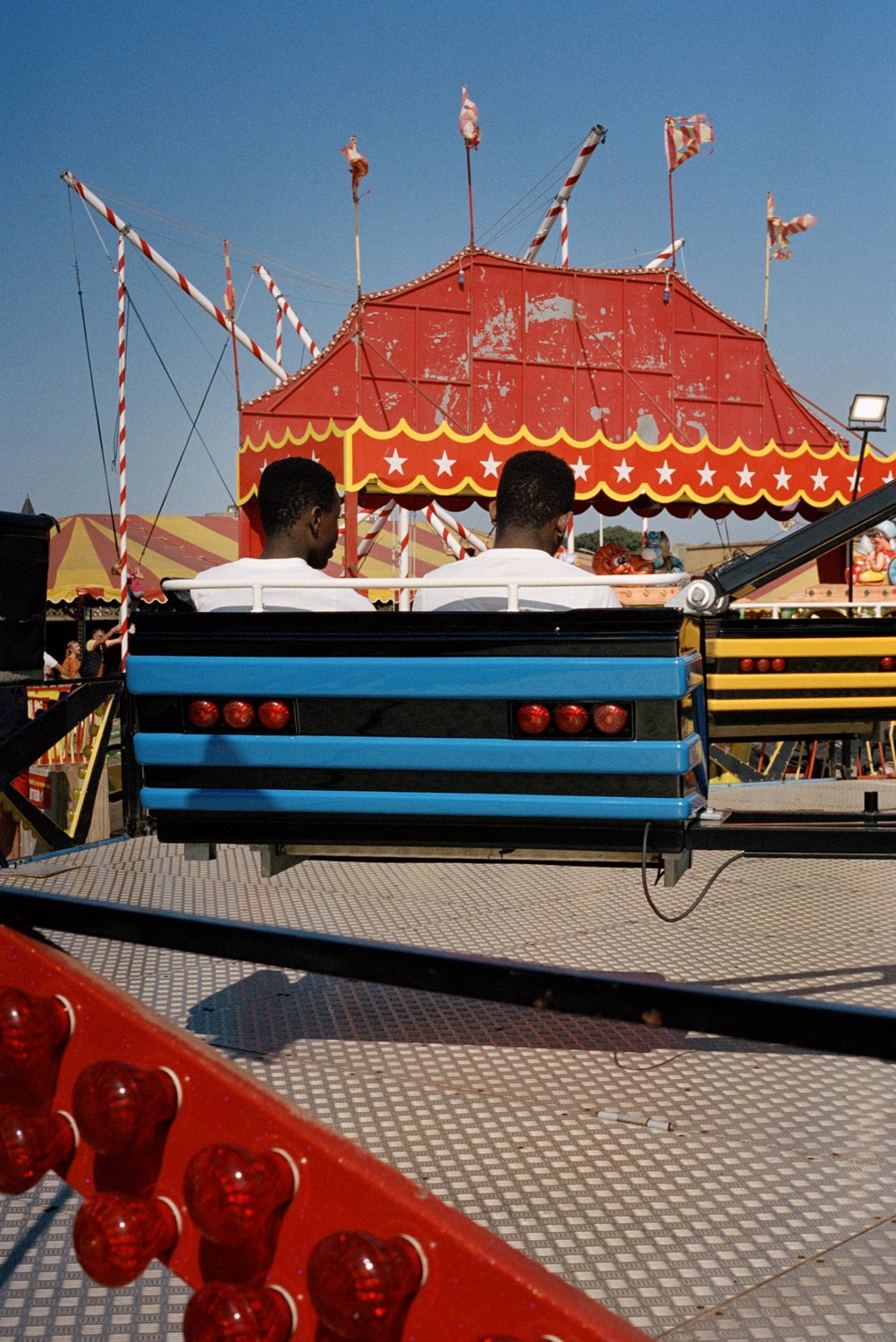
“Traveller communities, frequently marginalised or misunderstood, assert their identity through performance, tradition, and resilience in these spaces”
“Tangerine Dreams seeks to challenge the cliché of British identity by confronting the dominant narratives that have long shaped how Britishness is portrayed – narratives often rooted in whiteness, middle- and upper-class norms, and a narrow set of cultural references. For me, the way people form community, express identity, or practice ritual expands dominant narratives,” continues Green. “I see cultural traditions not just as personal or familial acts, but as powerful forms of resistance -– especially when they persist in spaces where mainstream culture tends to overlook or erase them.”
In one beautiful shot, a young boy, Nathan, challenges traditional ideas around gender aesthetics, for example, with his face in full glam make-up (and the makeup is perfectly placed). In another image, young Jarnail stands in front of a pink fairground in his blue Sikh patka (head wrap) at Bournemouth Beach. Back at the Modified Nationals show, two cans of Foster’s lager hold up a car hood. It’s a very ‘British’ scene. For over a decade, Green’s ongoing project Bangers and Smash, which features multiple times in the book, has explored the raw, high-octane world of banger racing – a subculture where cars are meticulously built, smashed to pieces in competition, then repaired and raced again the very next week.
“There’s something whimsical and eccentric about this cycle of creation and destruction. It defies convention and embraces a kind of joyful anarchy,” she says. “Banger racing is not just a sport; it’s a performative ritual passed down through generations of families. It fosters community, identity, and a profound sense of purpose – offering belonging in the most unexpected of places.”
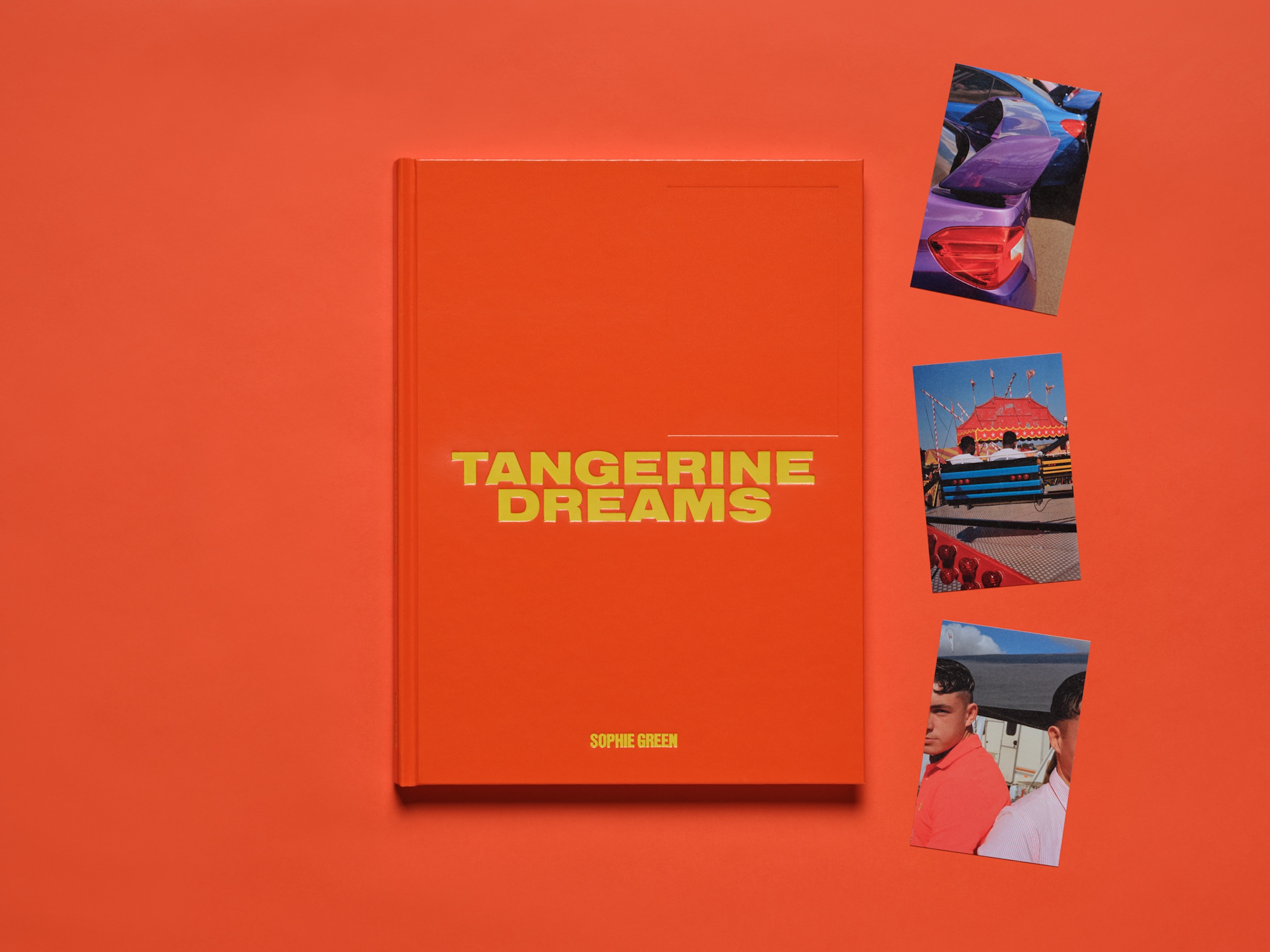
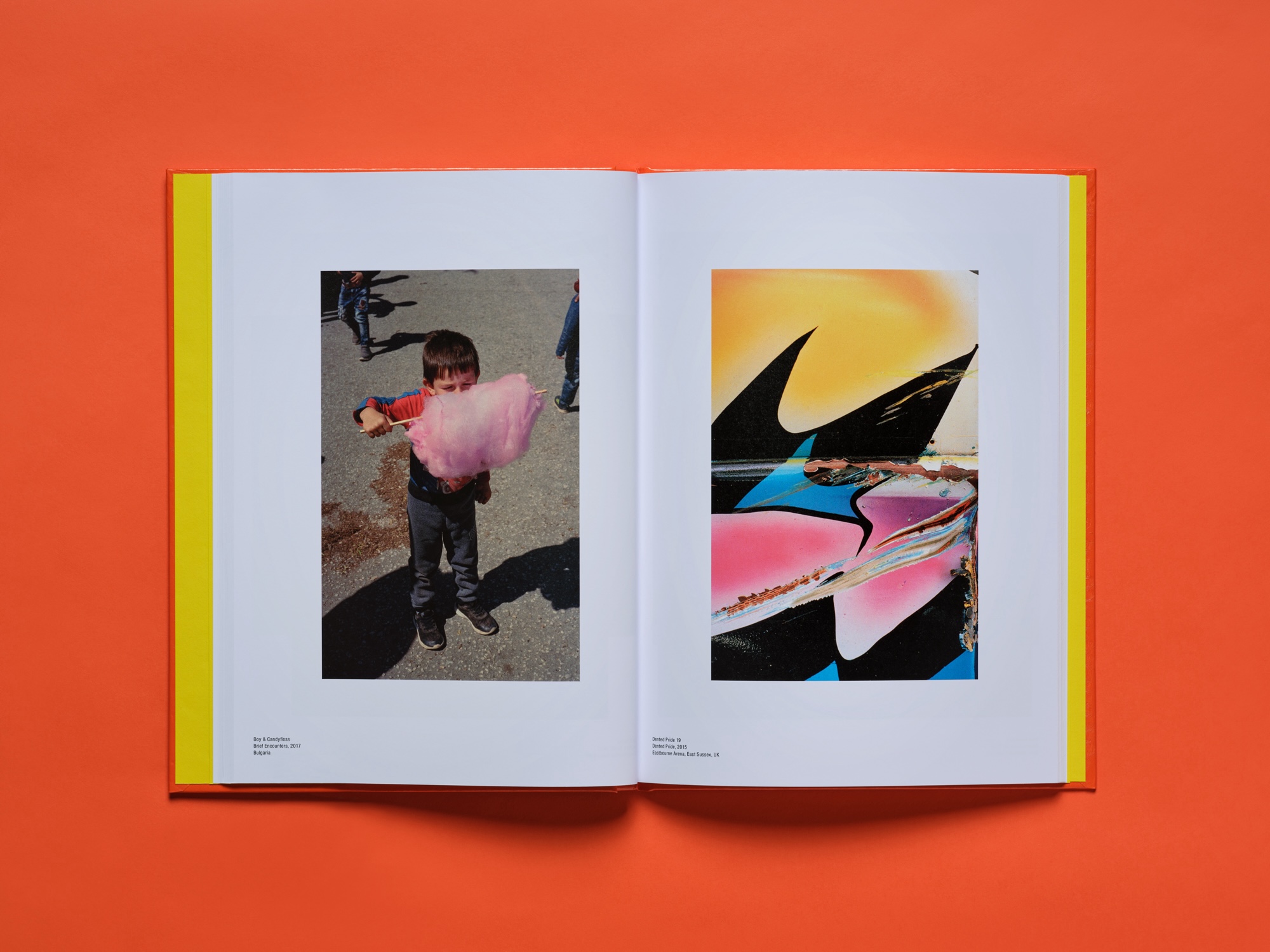
Whereas Gypsy Gold captures annual Traveller horse fairs, rich with centuries-old traditions like horse trading and family reunions. “Traveller communities, frequently marginalised or misunderstood, assert their identity through performance, tradition, and resilience in these spaces. Gypsy Gold reveals a side of Britain that is deeply connected to its own unique histories – offering a counter-narrative to simplistic national clichés.”
One of the most persistent cliches Green addresses in the book is the “tired image of Britain as grey, drab, and perpetually rain-soaked. Of course, it’s all about perspective,” she says, “but the real England, as I see it, is far more beguiling – kaleidoscopic, full of character and richness. I like to use bold, saturated colours to amplify the stories I capture, offering a fresh and vibrant take on British life.
Green’s Britain is a necessary one: with a growing hostile environment (Starmer’s Labour seems to only be hardening previous dangerous rhetoric against migrants), it seems only inevitable that the arts will continue to respond in the spirit of a common humanity and in search of a universal home beyond borders.
